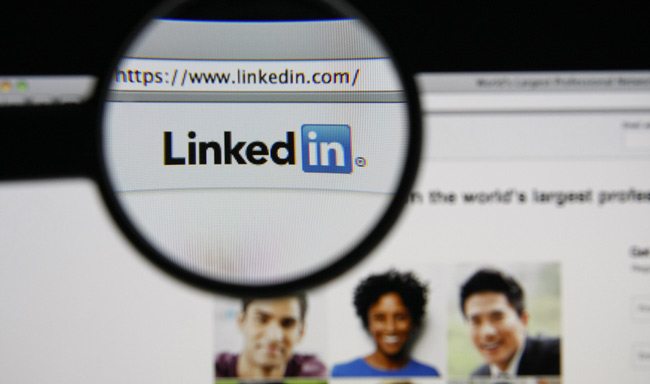LinkedIn calls itself the “World’s Largest Professional Network” and it has established itself as one of the three biggest must-play properties on social media.
If you’re looking to expand your influence and network–especially important goals for entrepreneurs and startups–LinkedIn is one of the key place to see and be seen.
“It not only provides the latest information relevant to your industry news and its players, but allows members to showcase accomplishments and thought-leadership which may otherwise be left in the confines of an office wall or personal blog,” Maya Mikhailov, LinkedIn pro and executive vice president of GPShopper, said to inc.com.
As important as LinkedIn is, most entrepreneurs and startups are making mistakes in their approach to it.
Here are seven common missteps and tips on how to get the most out of your LinkedIn platform.
Not being LinkedIn. Even though the system reports more than 250 million users worldwide, somehow LinkedIn acquired the reputation as being primarily a tool for jobseekers. Or a sort of online résumé database.
As a result, many entrepreneurs don’t see it as a marketing and networking tool the same way they see Facebook, for example. So they tend to give it less value, and some avoid it altogether. That’s a mistake. If you’re not already on LinkedIn, sign up right away.
Having a blank or sparse profile. Signing up isn’t enough. If you just open a P.O. Box and don’t tell anyone who you are or why you have it, you’ll only get junk mail.
LinkedIn is the same way. Don’t leave things blank. Since the entire system is designed around connecting people to people, the more you tell people about yourself, the more you’ll get out of it. Don’t just add what you’re doing now. Include what you did last. And with whom. And where you went to school.
If you need help filling out your profile, get help. For an entrepreneur, leaving blanks in your LinkedIn profile is like leaving money on the table.
Not connecting to groups. Even users with robust profiles aren’t taking full advantage of LinkedIn’s groups. Groups are where experts, insiders, and customers are. Groups enable you to find people you want to know and, more important, let people you care about find you.
If you can’t find a group that fits what you do or includes the people you want, start one. Not only will that solve the problem but also it’s a great way to demonstrate issue and market leadership.
Ignoring influencers. As part of the maturation process of LinkedIn, it’s added a news tool–Pulse–that makes it easy to find, follow, and connect with leaders who matter to you and your business.
Posting too little. With more than 60 million monthly visitors, LinkedIn has a reach equal to, or better than, many top-tier media outlets. And its by-design linking features mean your content is even more likely to be seen by people who matter.
If you’re producing content related to your business–and you probably should be–even cross-posting that material on LinkedIn is a good idea. And if you have the capacity to develop content for LinkedIn exclusively, even better. You can publish long-form content directly, and that’s the route to being invited to be a LinkedIn influencer.
Making it personal. If you’re going to post content on LinkedIn, as you should, don’t make it personal.
While this mistake is less common for entrepreneurs, it’s a bad one. LinkedIn is not Facebook. It is a business tool. So cat photos and latte reviews should be eschewed. LinkedIn content should be about your business, your ideas, and your market.
Selling. Don’t sell on LinkedIn. That includes sending “cold” pitches to people you don’t or barely know. Just don’t.
“LinkedIn should be used as a platform for thought-leadership, industry news, and of course any professional announcements. Constantly providing a hard sell to your product or services is the fasted way to have your updates hidden by members of your network,” Mikhailov said.
Instead, sell yourself by being a good community member and offering your expert opinion on topics that are important to the people who are important to you.


